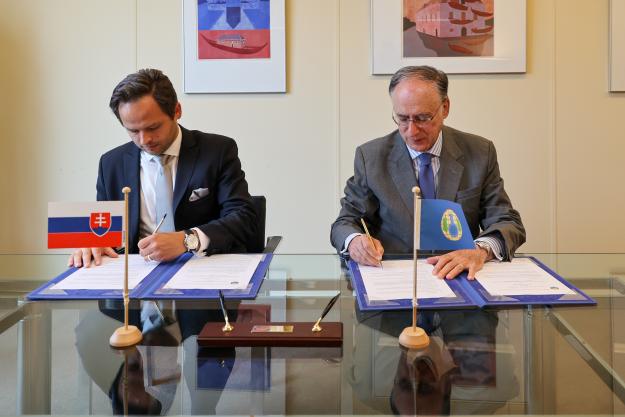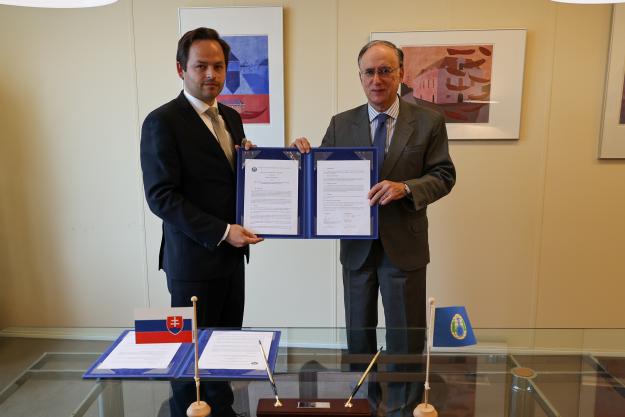
THE HAGUE, Netherlands—11 July 2022—The Government of the Slovak Republic provided a financial contribution of €20,000 to support the work of the Organisation for the Prohibition of Chemical Weapons (OPCW). The contribution was finalised on 8 July during a ceremony attended by Mr Jozef Kušlita, Deputy Permanent Representative of the Slovak Republic to the OPCW, and Ambassador Fernando Arias, Director-General of the OPCW.
The contribution was provided to the OPCW Trust Fund for the Implementation of Article X (assistance and protection against chemical weapons). It will be used to support OPCW’s ongoing assistance and protection programmes partly earmarked for activities related to Ukraine and its demands for means or items for protection.
Mr Kušlita stated: “The Slovak Republic has always been a fervent and dedicated supporter of the policy of disarmament and elimination of weapons of mass destruction, especially the chemical ones. Further to the request of Ukraine, the voluntary contribution is earmarked for their support pursuant to Article X of the Chemical Weapons Convention.”
Ambassador Arias remarked: “This contribution is another demonstration of Slovakia’s commitment to supporting the full implementation of the Chemical Weapons Convention and to upholding the global norm against chemical weapons.”

Background
The Slovak Republic has been an active member of OPCW since 1997.
Article X relates to the provision of assistance and protection, on request, to any Member State in the event of the use or threat of use of chemical weapons. The Trust Fund for the Implementation of Article X was established in 2002 by the OPCW Technical Secretariat to meet costs associated with the implementation of requirements under Article X of the Chemical Weapons Convention. It is funded by voluntary contributions from Member States.
As the implementing body for the Chemical Weapons Convention, the OPCW, with its 193 Member States, oversees the global endeavour to permanently eliminate chemical weapons. Since the Convention’s entry into force in 1997, it is the most successful disarmament treaty eliminating an entire class of weapons of mass destruction.
Over 99% of all declared chemical weapon stockpiles have been destroyed under OPCW verification. For its extensive efforts in eliminating chemical weapons, the OPCW received the 2013 Nobel Peace Prize.
